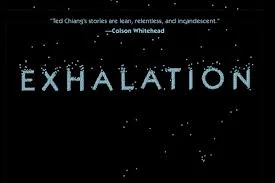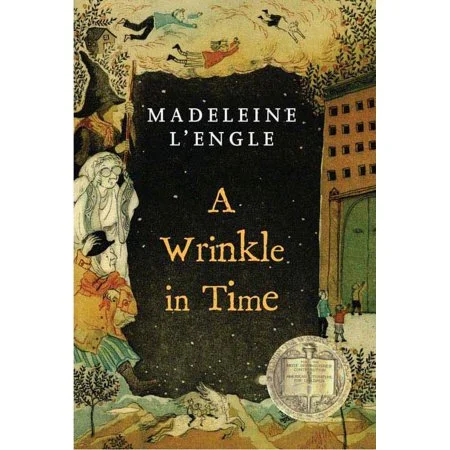Everything feels a little bit “off” right now, in the alternate reality/parallel universes kind of way. It’s the dreams, right? Ever since quarantine started. The vivid dreams, and then the surreal waking, and then the vivid dreams again. This past Monday night, I dreamt that Chris Rock was baking bread in my kitchen with Sam and Dean Winchester. I was sitting on a stool at the counter, pointing out what cupboard the bowls were in, where I kept the yeast in the freezer. We punched down the dough, set it in the oven box for the first rise. The oven was old, my great-gandmother’s wood stove. I knew in my dream that I’d inherited this house from her and lived in it always. We wiped down the kitchen, then Dean slapped the counter and said, “Well, let’s go check out the monster in the basement.” Leslie Jones stepped out of the downstairs bathroom, I guess she’d been there the whole time. “Let’s do this!” she said. We opened the door to the basement and trooped down the stairs, monster-slaying implements in hand. Chaos ensued.
I can tell waking from sleeping. I mean, I’m not crazy. But the feelings of the nightmare persist from my dreams to my waking life without relief, coloring my daily morning doomscroll through the news on my phone. The dream logic manifests in waking as well. From quarantine, to murder hornets, to the next outrage, each is a little surprising at first, but almost immediately gets incorporated into a new “normal.” Alternate realities aren’t somewhere out there in the ether, but here, contained in our reality.
Speculative fiction excels in this uncanny dream-space, imagining alternate worlds just slightly off from our own. It’s a place to spin out a thought experiment, examine the unconscious with metaphors that make the familiar strange. And what could be stranger to the imagination at this moment than a vision of utopia? Utopia’s are hard to write. First, there’s convincing the reader that it’s possible at all:
It’s hard to believe in a utopia without a nightmare attached. Then there’s the cost of achieving utopia. Ursula K. Le Guin’s “The Ones Who Walk Away from Omelas” is a classic example. In Le Guin’s story, the city of Omelas is perfect, except for one flaw: There is one innocent child, locked away in the dark, who suffers a life of privation and torture. If anyone rescues the child, the utopia of Omelas will collapse. The concept of the forsaken child is not new; Dostoevsky and William James both employ it, and I’m sure it predates their work, too. In The Brothers Karamazov, Dostoevsky sets it as a conversation between two monks:
“Tell me yourself, I challenge your answer. Imagine that you are creating a fabric of human destiny with the object of making men happy in the end, giving them peace and rest at last, but that it was essential and inevitable to torture to death only one tiny creature—that baby beating its breast with its fist, for instance—and to found that edifice on its unavenged tears, would you consent to be the architect on those conditions? Tell me, and tell the truth.”
In S.L. Huang’s “As the Last I May Know” and Aliette de Bodard’s “Lullaby for a Lost World,” the authors assume a decent reader. Each story is told from the perspective of the child; it’s obvious who the bad guy is. The tension comes from waiting to see if the villain will carry through with the terrible deed. In de Bodard’s story, the forsaken child returns from the grave as a vengeful beast to rain down ruin on her tormentor and his beautiful fortress. The revenge is bloody and very satisfying. In contrast, Huang’s tale is a hopeful prayer for humanity. The child is there to humanize the enemy for the general who is fighting a war. She has the launch codes to world-destroying weapons surgically implanted in her heart. To use the ultimate weapon against the adversaries of his people, the general would have to murder this child with his own hands. We never know his decision, and the reader is left with the question spinning in their mind.
In each of these stories, the citizens of utopia have a choice that the forsaken child does not: to continue in utopia and let the child suffer, or help the child and destroy the world. Who would ever choose the utilitarianism of the “greater good” when faced with the suffering of a child? Only a monster, especially when the monster stands to benefit from the child’s suffering. And that’s the point. In the world of Le Guin’s “Omelas,” citizens learn the awful truth about their city when they come of age:
“No matter how well the matter has been explained to them, these young spectators are always shocked and sickened at the sight. They feel disgust, which they had thought themselves superior to. They feel anger, outrage, impotence, despite all the explanations.… Often the young people go home in tears, or in a tearless rage, when they have seen the child and faced this terrible paradox. They may brood over it for weeks or years. But as time goes on they begin to realize that even if the child could be released, it would not get much good of its freedom: a little vague pleasure of warmth and food, no doubt, but little more. It is too degraded and imbecile to know any real joy. It has been afraid too long ever to be free of fear. Its habits are too uncouth for it to respond to humane treatment. Indeed, after so long it would probably be wretched without walls about it to protect it, and darkness for its eyes, and its own excrement to sit in. Their tears at the bitter injustice dry when they begin to perceive the terrible justice of reality, and to accept it.”
Some citizens choose not to rationalize the evil that makes their utopia possible; they don’t try to excuse their own monstrosity. These are the ones who walk away. Le Guin leaves it to the reader to imagine where they are going, and the kind of world they will make.
But what if the utopian citizens could completely forget they were monsters? Dr. Who examines that idea in “The Beast Below” (Season 5, Episode 2). The multi-generational Starship U.K. is one of the last bastions of humanity in the universe, but no one knows what powers the ship. Everyone is free to ask at any time, though. They enter a booth, watch a pre-recorded explanation, and then choose to forget or to protest. Everyone chooses to forget. There is an innocent beast below, tortured into carrying the ship. If one person protests, the torture will stop; however, if they stop the torture, everyone on the ship will die. But this is a children’s show. It has a happy ending. It turns out that they don’t need to torture the beast. The creature wants the burden of carrying the ship because of its great compassion for the children who live on its back.
Last summer, N. K. Jemisin published How Long ‘Til Black Future Month?, a collection of stories. The first story in the collection, “The Ones Who Stay and Fight,” is in conversation with Le Guin’s “Omelas.” Written in direct address, “The Ones Who Stay and Fight” challenges the reader to imagine a utopia called Um-Helat. Like John Lennon’s song “Imagine,” Jemisin paints a picture of a city where every person is valued and respected, kindness and compassion are the norm, and where there is true equity for all citizens. The reader instinctively waits to hear about the cost, and the narrator addresses the mind’s repeated attempts to wake from the dream of Um-Helat. The speaker breaks in from time to time to address the resistant reader with a sarcastic pity, apologizing for the offense this humane vision will necessarily incite. The world of Um-Helat used to be more like ours, they say, and everyone knows about it. “Every young citizen must be reminded of these things upon coming of age, and told carefully curated stories of their nature and purpose. When the young citizens learn this, it is a shock almost incomprehensible, in that they literally lack the words to comprehend such things.”
The world of Um-Helat is parallel to ours and, with the right equipment, they can hear and see information from our world, just as the narrator, who is from our world, must be able to see theirs. To build this equipment, and listen to the information from our world, is the only crime in Um-Helat. The information from our world is toxic, and those who commit the crime know it:
“They know this is what destroyed the old cities. And indeed, they are horrified at what they hear through the speakers, see on the screens. They begin to perceive that ours is a world where the notion that some people are less important than others has been allowed to take root, and grow until it buckles and cracks the foundations of our humanity. “How could they?” the gleaners exclaim, of us. “Why would they do such things? How can they just leave those people to starve? Why do they not listen when that one complains of disrespect? What does it mean that these ones have been assaulted and no one, no one, cares? Who treats other people like that?” And yet, even amid their marvel, they share the idea. The evil ... spreads.”
There is a suffering child in Um-Helat, and there is a choice, and a terrible cost, but not the one you expect. I’ll leave you to read it and find out. This is a story of parallel worlds that haunts. The way our world and the world of Um-Helat experience each other is through information. The multiverse we actually live in encompasses the narratives that shape our minds. From Plato’s Republic, to Le Guin’s Omelas, to Jemisin’s Um-Helat, to outrage on Twitter and toxic memes passed across Facebook, no one can dismiss these texts as “just words.” The monster in my dream basement is a shifting thing. It feeds on what haunts me. Just as the toxicity of doom scrolling through the news haunts my waking and my sleeping, so does Jemisin’s story.

































There is so much out there to read, and until you get your turn in a time loop, you don’t have time to read it all to find the highlights.